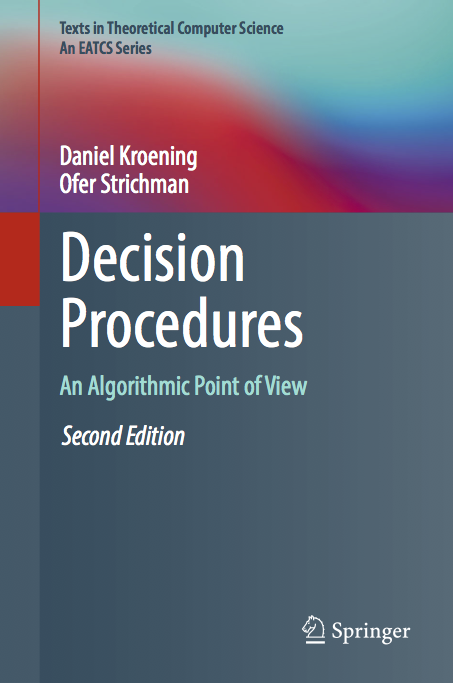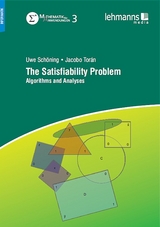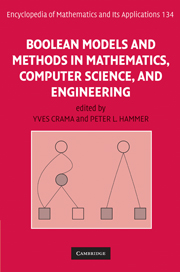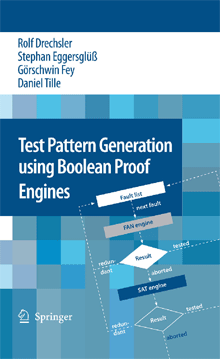Final CFP - SAT 2017 - August 28 - September 1, 2017 - Melbourne, Australia
FINAL
CALL FOR PAPERS
Twentieth International Conference on
THEORY AND APPLICATIONS OF SATISFIABILITY TESTING
--- SAT 2017 ---
Melbourne, Australia, 28 Aug - 01 Sep 2017
http://sat2017.gitlab.io/
Abstract submission deadline: 26 April 2017, 23:59 AoE
Paper submission deadline: 02 May 2017, 23:59 AoE
The International Conference on Theory and Applications of Satisfiability Testing (SAT) is the premier annual meeting for researchers focusing on the theory and applications of the propositional satisfiability problem, broadly construed. In addition to plain propositional satisfiability, it also includes Boolean optimization (such as MaxSAT and Pseudo-Boolean (PB) constraints), Quantified Boolean Formulas (QBF), Satisfiability Modulo Theories (SMT), and Constraint Programming (CP) for problems with clear connections to Boolean-level reasoning.
Many hard combinatorial problems can be tackled using SAT-based techniques including problems that arise in Formal Verification, Artificial Intelligence, Operations Research, Computational Biology, Cryptography, Data Mining, Machine Learning, Mathematics, etc. Indeed, the theoretical and practical advances in SAT research over the past twenty years have contributed to making SAT technology an indispensable tool in a variety of domains.
SAT 2017 aims to further advance the field by soliciting original theoretical and practical contributions in these areas with a clear connection to Satisfiability. Specifically, SAT 2017 invites scientific contributions addressing different aspects of SAT interpreted in a broad sense, including (but not restricted to) theoretical advances (such as exact algorithms, proof complexity, and other complexity issues), practical search algorithms, knowledge compilation, implementation-level details of SAT solvers and SAT-based systems, problem encodings and reformulations, applications (including both novel application domains and improvements to existing approaches), as well as case studies and reports on findings based on rigorous experimentation.
SAT 2017 will take place alongside CP 2017 and ICLP 2017 in Melbourne the week immediately following IJCAI 2017. As in previous years, the SAT conference hosts several competitive events which run before the conference and whose results are disclosed during the conference. A list of affiliated workshops, to be held on 28 August 2017, can also be found on the website.
SCOPE
SAT 2017 welcomes scientific contributions addressing different aspects of the satisfiability problem, interpreted in a broad sense. Domains include MaxSAT and Pseudo-Boolean (PB) constraints, Quantified Boolean Formulae (QBF), Satisfiability Modulo Theories (SMT), as well as Constraint Satisfaction Problems (CSP). Topics include, but are not restricted to:
- Theoretical advances (including algorithms, proof complexity, parameterized complexity, and other complexity issues);
- Practical search algorithms;
- Knowledge compilation;
- Implementation-level details of SAT solving tools and SAT-based systems;
- Problem encodings and reformulations;
- Applications (including both novel applications domains and improvements to existing approaches);
- Case studies and reports on insightful findings based on rigorous experimentation.
PAPER CATEGORIES
Submissions to SAT 2017 are solicited in three paper categories, describing original contributions.
- Long papers (9 to 15 pages, excluding references)
- Short papers (up to 8 pages, excluding references)
- Tool papers (up to 6 pages, excluding references)
Long and short papers should contain original research, with sufficient detail to assess the merits and relevance of the contribution. For papers reporting experimental results, authors are strongly encouraged to make their data and implementations available with their submission. Submissions reporting on case studies are also encouraged, and should describe details, weaknesses, and strengths in sufficient depth. Long and short papers will be evaluated with the same quality standards, and are expected to contain a similar contribution per page ratio.
The authors should choose between a long or a short paper depending on the space they need to fully describe their contribution. The classification between long and short papers is mainly a way to balance the workload of the reviewing process among PC members. It also impacts the duration of the presentation of the work during the conference. It is the responsibility of the authors to make sure that their paper is self-contained in the chosen limit of pages. There will be no requalification of the submissions by the PC.
Tool papers must obey to a specific content criteria. A tool paper should describe the implemented tool and its novel features. Here “tools” are interpreted in a broad sense, including descriptions of implemented solvers, preprocessors, etc., as well as systems that exploit SAT solvers or their extensions for use in interesting problem domains. A demonstration is expected to accompany a tool presentation. Papers describing tools that have already been presented previously are expected to contain significant and clear enhancements to the tool.
SUBMISSIONS
Submissions should not be under review elsewhere nor be submitted elsewhere while under review for SAT 2017, and should not consist of previously published material.
Submissions not consistent with the above guidelines may be returned without review.
Besides the paper itself, authors may submit a supplement consisting of one file in the format of a gzipped tarball (.tar.gz or .tgz) or a gzipped file (.gz) or a zip archive (.zip). Authors are encouraged to submit a supplement when it will help reviewers evaluate the paper. Supplements will be treated with the same degree of confidentiality as the paper itself. For example, the supplement might contain detailed proofs, examples, software, detailed experimental data, or other material related to the submission. Individual reviewers may or may not consult the supplementary material; the paper itself should be self-contained.
All papers submissions are done exclusively via EasyChair in Springer’s LaTeX llncs2e style.
One author of each accepted paper is expected to present it at the conference.
IMPORTANT DATES
All deadlines are 23.59 AoE (anywhere on earth)
- 26 Apr 2017: Abstract submission
- 2 May 2017: Paper submission
- 29-31 May 2017: Author response period
- 14 Jun 2017: Notification
- 28 Jun 2017: Camera ready deadline
- 28 Aug - 01 Sep 2017: Conference
PROCEEDINGS
All accepted papers are expected to be published in the proceedings of the conference, which will be published within the Springer LNCS series.
TRAVEL SUPPORT AND BEST PAPER AWARDS
Long and short papers may be considered for a best paper award. If the main author is a student, both in terms of work and writing, the paper may be considered for a best student-paper award. Use the supplement to your submission to state (in a brief cover letter) if the paper qualifies as a student paper. Both the best paper award and the best student paper award are sponsored by Springer.
The SAT association will provide partial travel support to students with accepted papers to attend SAT 2017.
ORGANIZATION
Program Chairs
- Serge Gaspers, UNSW Sydney and Data61, CSIRO
- Toby Walsh, UNSW Sydney and Data61, CSIRO
Local Chair
- Serge Gaspers, UNSW Sydney and Data61, CSIRO
Workshop Chair
- Stefan Rümmele, UNSW Sydney and University of Sydney
Organizing Committee
- Serge Gaspers (chair), UNSW Sydney and Data61, CSIRO
- Edward J. Lee, UNSW Sydney and Data61, CSIRO
- Kamran Najeebullah, UNSW Sydney and Data61, CSIRO
- Guido Tack, Monash University and Data61, CSIRO
- Tommaso Urli, Data61, CSIRO
- Toby Walsh, UNSW Sydney and Data61, CSIRO
Program Committee
- Gilles Audemard, CRIL
- Fahiem Bacchus, University of Toronto
- Valeriy Balabanov, Mentor Graphics
- Bernd Becker, Albert-Ludwigs-University Freiburg
- Olaf Beyersdorff, University of Leeds
- Armin Biere, Johannes Kepler University Linz
- Nadia Creignou, Aix-Marseille Université
- Uwe Egly, TU Wien
- Serge Gaspers, UNSW Sydney and Data61, CSIRO
- Carla Gomes, Cornell University
- Marijn Heule, The University of Texas at Austin
- Alexey Ignatiev, University of Lisbon
- Mikolas Janota, University of Lisbon
- Michael Kaufmann, University of Tuebingen
- Chu-Min Li, Université de Picardie Jules Verne
- Florian Lonsing, TU Wien
- Ines Lynce, INESC-ID, Universidade de Lisboa
- Vasco Manquinho, INESC-ID, University of Lisbon
- Carlos Mencía, University of Oviedo
- Nina Narodytska, Samsung Research America
- Alessandro Previti, University of Helsinki
- Enric Rodríguez Carbonell, Technical University of Catalonia
- Vadim Ryvchin, Technion
- Bart Selman, Cornell University
- Laurent Simon, Labri, Bordeaux Institute of Technology
- Carsten Sinz, Karlsruhe Institute of Technology
- Friedrich Slivovsky, TU Wien
- Ofer Strichman, Technion
- Stefan Szeider, TU Wien
- Allen Van Gelder, University of California, Santa Cruz
- Toby Walsh, Data61, UNSW Sydney and Data61, CSIRO
CONTACT
sat2017@easychair.org










